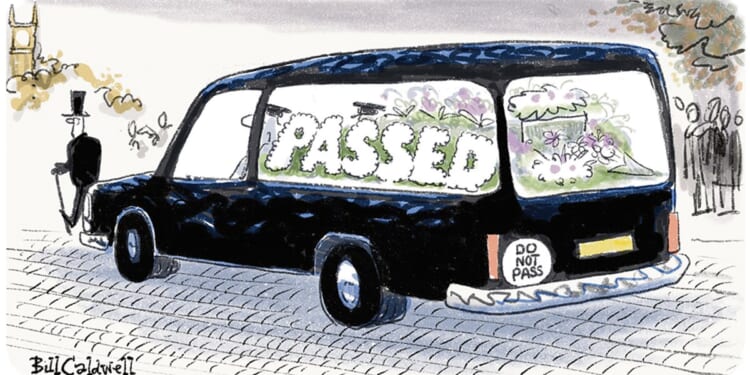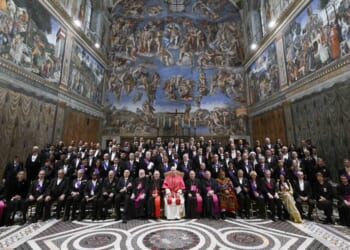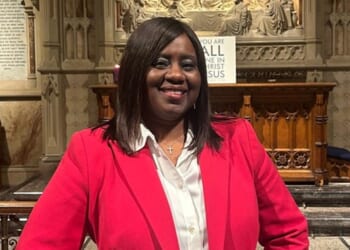PEOPLE used to die. Now, it seems, they pass away. Or — say it quickly and quietly enough no one will even notice — they just pass. Media outlets report the passing of someone famous. Undertakers now refer to the deceased as having passed away when communicating funeral arrangements. Buckingham Palace, announcing the recent death of the Duchess of Kent, stated that she had “passed away peacefully” (News, 12 September). Is this the death of dying?
Euphemisms for death and dying are nothing new. But there is a subtle and important difference between the idioms that we have used in the past, and the increasingly normalised use of “pass” and “pass away”.
Older, more consciously religious generations might have said “gone to glory”, or “met her Maker” — phrases that indicated the expectation of immortality. On the tombstones and memorials in churches and churchyards, you will find phrases such as “departed this life” and “entered into his rest”. They convey the sense of a journey from one life to another. In his epistles, St Paul uses “fallen asleep” interchangeably with “died”. It implies that there will be a “waking up” — “the dead shall be raised.”
“Pass away”, on the other hand, is nebulous and open-ended. From what, and to what, is the deceased passing? I suspect that it is precisely this ambiguity that is making “pass away” so common. It appeals to a post-Christian, post-religious society that needs a non-Christian, non-religious euphemism for death and dying. It is, therefore, a perfectly reasonable term to use if you have no religion.
People should be free to choose whatever language they wish to describe the end of life. But I want to argue that “pass” and “pass away” should not be the default terms that Christians use. While their use may appear to be pastorally sensitive, I fear that they imply a lack of confidence in that which is at the heart of the gospel.
Jesus did not pass on the cross; nor did he pass away for our sins. If we believe that our hope of resurrection lies in the resurrection of Jesus, then we need to use the same language about our death as we do about his death. We need to reclaim the language of dying and death.
I AM not alone in mourning death. On the day after Pope Francis died, the banner on the front page of the Daily Mail read “The Passing of Pope Francis”. The Times columnist Giles Coren reacted on Instagram with his customary acerbity: “It’s the DEATH of Pope Francis. Of all humans in the world he was the one with least to fear in dying. . . You pass wind. You pass the ball. You don’t pass the . . . Pope!”
There is, I think, a broader issue to which Coren alludes. I wonder whether the vagueness of “pass away” is symptomatic of society’s inability to deal with death. We feel the need either to sanitise it, or — as evidenced by Hallowe’en celebrations — to trivialise it.
Those of us who help the bereaved to plan their loved ones’ funerals have the challenge of balancing their legitimate desire for an upbeat “celebration of life” with the often unspoken and sometimes inhibited need to grieve for the person who has died.
I find myself gently encouraging families to confront the reality of a person’s death. I want to give them the opportunity to mourn. The best funerals, in my experience, are the ones at which people have licence to laugh and cry — often at the same time.
It is precisely in this tension between joy and sorrow that Christian ministers have the opportunity — indeed, the responsibility — to communicate the hope that we have in Jesus Christ. Funerals may rarely be the time for energetically evangelistic sermons; but we must not forget that we have something distinctive to say about death, and we need to have the confidence to say it.
Similarly, the Church’s liturgy offers a rich framework in which are held the tensions between celebration and mourning, thankfulness and lament. A funeral service is, at its heart, a celebration of Easter.
THE Church’s confidence in the resurrection is nowhere more palpable than in the Order for the Burial of the Dead in the Book of Common Prayer. The first words uttered by the priest are the words that Jesus spoke to Martha on the death of her brother Lazarus: “I am the resurrection and the life, saith the Lord: he that believeth in me, though he were dead, yet shall he live: and whosoever liveth and believeth in me shall never die.” (It doesn’t sound anything like as convincing if you replace “dead” and “die” with “passed” and “pass”.)
Using “dying” and “death” does not make us morbid or miserable. On the contrary, they are words that for the Christian, are infused with the hope of immortality and the promise of eternity. Let’s reclaim them — because we cannot speak about dying without also speaking about rising again; and because we cannot speak about death without also proclaiming the resurrection.
The Revd Daniel Sandham is the Vicar of St Paul’s, Winchmore Hill, and the Area Dean of Enfield, in the diocese of London.

















